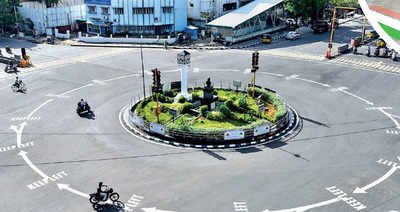The New Indian Express 03.04.2013
Amma eateries to be replicated across TN
Stating that the sale of one lakh metric tonnes of rice through
cooperative stores at Rs 20 per kg and opening of Farm Fresh Consumer
Outlets would commence very soon as part of measures to cushion people
from the severe impact of the rise in prices of essential commodities,
Chief Minister J Jayalalithaa announced that the subsidised tiffin
centres scheme (Amma Unavagam) would be extended gradually to other
Municipal Corporations in the State.
Giving a detailed account on
the measures being taken by her government to protect people from price
rise, the CM said that so far, she had inaugurated 200 subsidised tiffin
centres in Chennai and the scheme would be gradually extended to other
Corporations.
Replying to a special mention on the price rise
issue in the State Assembly, she said measures taken by the State to
check price rise included distribution of 20 kg rice free of cost,
allocation of Rs 25 crore from Price Stabilisation Fund to the TN Civil
Supplies Corporation, sale of 10,000 metric tonnes of fine variety rice
at cost price in the open market, extension of special Public
Distribution System till March 2014, additional price for procurement of
paddy, hiking the price stabilisation fund to Rs 100 crore, sale of
pulses through cooperative societies and waiver of VAT on cooking gas
from July 1, 2011.
Pointing out that the erroneous price fixation
policy being adopted by the Cente for petroleum products had a
spiralling effect on prices of essential commodities, the CM said, “Only
if the Centre changes the price fixation policy for petroleum products,
price rise could be contained to an extent.”
The CM asked the Centre to initiate constructive steps to contain price rise.
Elaborating,
the CM said that though the selling price of one idli at the subsidised
tiffin centres was Rs 1, the actual cost of each idli was Rs 1.80.
Hence, the loss for Chennai Corporation per idli would be 80 paise.
“Suppose if the Corporation compares the price of one idli in private
hotels, say Rs 10 per piece, and argues that it incurs a loss of Rs 9
per idli, will anyone accept this? But the oil companies are adopting
this kind of illogical comparison saying that they are suffering from
‘under recovery’.”
While the Union Finance Ministry wanted to fix
the price of petroleum products on the basis of ‘export parity price’,
the Petroleum Ministry rejected the idea and sought the setting up of an
experts committee to decide on the issue.
Referring to the case
filed by TN before the Madras HC challenging the dual pricing policy for
diesel, the CM said though the HC had granted an interim stay on the
Centre’s policy, the Union government had admitted that the decision to
adopt dual pricing policy for diesel was indeed its own decision and, as
such, the TN government should have challenged the decision in the SC.
“If the price of oil is fixed based on the cost of domestic and imported
crude oil and their refining cost, people would get fuel at a cheaper
rate and price rise can be controlled,” she said.

